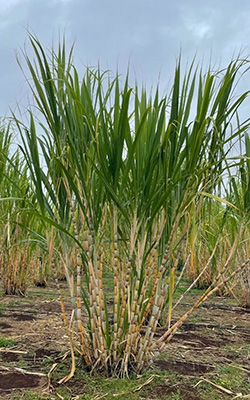Understanding the Different Types of Sugar and Cane and Their Uses
Understanding the Different Types of Sugar and Cane and Their Uses
Blog Article
Why Cane Sugar Handling Chemicals Are Important for Modern Sugar Refining
The role of walking cane sugar processing chemicals in modern-day sugar refining can not be overstated, as they are indispensable to boosting both the efficiency of removal and the overall quality of the final product. Agents such as phosphoric acid and details flocculants are employed to eliminate impurities, resulting in sugar that not just satisfies consumer expectations however additionally adheres to sector standards.
Function of Processing Chemicals
The efficacy of cane sugar processing pivots significantly on the calculated application of handling chemicals. These chemicals play a critical duty in boosting the effectiveness and high quality of sugar extraction and refining. From the preliminary stages of juice extraction to the last purification steps, handling chemicals promote different critical operations.
In the extraction stage, chemicals such as phosphoric acid and calcium hydroxide are used to enhance the information process, assisting to eliminate contaminations and suspended solids from the walking cane juice. This not only boosts the return however also makes certain the quality of the final product. Furthermore, agents like flocculants aid in the fast settling of impurities, consequently improving the general process.
As the handling developments, chemicals are used in decolorization and condensation phases. Triggered carbon and ion exchange materials offer to remove color and odor, making sure that the refined sugar satisfies customer top quality criteria. Inevitably, the role of handling chemicals extends past operational effectiveness; they dramatically influence the sensory qualities of the last product, adding to market competition. Hence, the precise option and application of these chemicals are essential for attaining optimum results in walking cane sugar handling.
Trick Kinds Of Chemicals
Walking stick sugar handling depends on a selection of essential chemicals that promote each phase of production. These chemicals play important functions in making clear, bleaching, and detoxifying the sugar extracted from walking cane.
One primary classification of chemicals consists of flocculants, such as polyacrylamide, which aid in the information process by advertising the aggregation and settling of contaminations. Furthermore, calcium hydroxide is often utilized to reduce the effects of acidity and assist in the removal of non-sugar elements.
Bleaching representatives, such as triggered carbon and sulfur dioxide, are utilized to decolorize the syrup, resulting in a clearer end product. These chemicals assist get rid of color substances that might impact the sugar's look and bankability.
Furthermore, phosphoric acid functions as a pH regulator throughout the processing phases, making sure optimum conditions for the chemical tasks entailed in sugar extraction and purification.
Other vital agents include edta (ethylenediaminetetraacetic acid), which chelates steel ions that might catalyze undesirable responses, and salt hydroxide, which assists in pH control throughout the refining procedure. Collectively, these chemicals improve performance and guarantee a high-grade cane sugar item.
Advantages for Sugar Top Quality
Typically neglected, using specific processing chemicals substantially boosts the total quality of cane sugar. These chemicals play a pivotal duty in refining processes, guaranteeing that the end product meets rigorous sector criteria for pureness and taste.

Additionally, refining chemicals help in accomplishing a constant granulation and structure, which are crucial for consumer approval. By regulating the crystallization procedure, these chemicals make sure that the sugar crystals form uniformly, causing an extra attractive product that dissolves well in numerous applications.
Furthermore, making use of these chemicals can boost the service life of walking cane sugar by lessening dampness absorption and microbial growth. Generally, the strategic application of processing chemicals is crucial for supplying top notch cane sugar that satisfies customer assumptions and market needs.
Ecological Effect Considerations

Moreover, the energy-intensive nature of sugar refining, intensified by chemical use, typically results in increased carbon discharges. This adds to environment change and elevates worries pertaining to the sustainability of current refining methods. Additionally, the sourcing of these chemicals may entail techniques that intimidate biodiversity, such as monoculture farming, which minimizes the strength of farming environments.

To mitigate these influences, sugar refiners are significantly discovering lasting choices and taking on finest methods that reduce chemical use. Carrying out rigorous environmental management systems can help make sure that the refining process lines up with environmental requirements and promotes biodiversity. Ultimately, a well balanced strategy that prioritizes both sugar top quality and ecological stewardship is important for the lasting stability of see page the sugar sector.
Future Trends in Refining
As the sugar industry grapples with the ecological difficulties related to conventional refining approaches, innovative methods are arising to enhance both performance and sustainability. One substantial fad is the fostering of eco-friendly chemistry principles, which focus on using non-toxic, eco-friendly processing chemicals. This change not only lessens environmental impact yet additionally addresses consumer need for cleaner manufacturing methods.
One more encouraging growth is the implementation of innovative purification innovations, such as membrane separation and adsorption procedures. These techniques improve the quality and high quality of the sugar while minimizing the quantity of wastewater generated during refining. In addition, the assimilation of digital technologies, including IoT and AI, is changing operational efficiency by enabling real-time surveillance and predictive upkeep, hence reducing source waste.
Furthermore, using byproducts from sugar refining, such as bagasse and molasses, is gaining traction. These products can be exchanged biofuels or value-added products, adding to a round economic situation within the industry. Collectively, these trends signal a shift in the find direction of more lasting methods that not just improve operational efficiency but also align with international sustainability goals, making certain the future practicality of sugar refining.
Conclusion
Cane sugar handling chemicals are crucial in modern sugar refining, significantly boosting the efficiency and high quality of sugar removal. The calculated use these chemicals not just enhances the pureness and flavor of the end product yet also guarantees constant condensation and appearance. As the market significantly prioritizes sustainability, the adoption of environmentally-friendly processing representatives is most likely to shape future trends in refining, ultimately bring about better items and extended life span for customers.

Inevitably, a well balanced approach that focuses on both sugar high quality and ecological stewardship is important for the long-term stability of the sugar sector.
Walking cane sugar handling chemicals are essential in contemporary sugar refining, substantially improving the efficiency and top quality of sugar removal.
Report this page